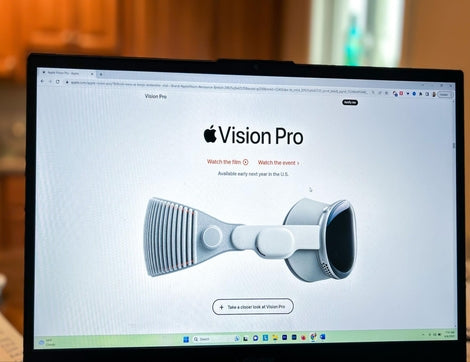Today, the world of technology is witnessing a new turning point, and the spotlight has shifted from the widespread AI wars to the more nascent AR wars. This new realm of conflict has been ushered in by none other than tech giant, Apple, with their dive into augmented reality (AR) using mixed reality headsets. This innovative shift carries the significant potential to catalyse radical transformations within the vocational education and training sector, opening the door to myriad benefits and a future of possibilities.
The Role of AR in Vocational Education:
AR technology has already made a significant impact across a variety of sectors, but its influence in vocational training is still burgeoning. Despite being a relatively new player in the field, there's strong evidence to suggest that AR could be a powerful ally for vocational education and training. A comprehensive review of AR's application in vocational training identified skill enhancement and the integration of AR training technology as critical focus areas. With the review analysing 80 pertinent studies over two decades, the evidence pointed to notable improvements in skills and learning outcomes.
The Value Proposition of AR:
The case for AR in vocational education and training is compelling. By overlaying digital data onto real-world environments, AR provides an immersive and interactive learning experience that enhances student engagement and motivation. This improved interactivity makes the learning process more dynamic, and as such, more effective. Studies have demonstrated that AR applications can bolster students' concentration, attention span, and self-confidence, all of which can drive improved learning outcomes. Moreover, AR's unique capability to visualise intricate processes and interactions within industrial machinery allows for the seamless transfer of knowledge-intensive tasks, thereby boosting the quality of training.
Apple's AR Vision:
Apple's foray into the AR arena with their Apple Vision Pro mixed reality headsets could be the 'iPhone moment' for mixed reality technology. The introduction of the iPhone was a pivotal event that fundamentally changed the landscape of the smartphone industry. Similarly, Apple's AR devices have the potential to redefine vocational education and training. The Vision Pro headsets promise to bring forward advanced features that elevate the AR experience, making it more an intuitive and user-friendly interface. This could pave the way for the widespread integration of AR into vocational training programs, helping to bridge the gap between theoretical instruction and practical application.
Future Outlook:
As AR technology continues to evolve, there's much anticipation for future enhancements that will shape the vocational education and training sector. Improvements in device capabilities, such as superior visual fidelity, expanded field of view, and more accurate tracking, promise to make AR experiences more realistic and immersive. This will further amplify the effectiveness of vocational training programs. Additionally, the emergence of AR authoring tools and platforms will empower trainers and educators to create bespoke AR content, tailored to unique vocational skills and industry requirements.
However, it's essential to acknowledge the ongoing dialogue surrounding AI in vocational education and training. The Australian government's recent discussion around the potential banning of high-risk AI applications has ignited a debate among AI experts. The key aim of this discourse is to address ethical and safety considerations associated with AI and to ensure its responsible deployment in alignment with human rights. Striking a balance between advancements in AR and AI will be integral to the future development of vocational education and training.
Conclusion:
In essence, the dawn of the AR wars, fuelled by Apple's entry into the mixed reality headset market, could revolutionise the vocational education and training sector. The potential benefits of AR for enhancing vocational skills and improving training outcomes are substantial, and Apple's Vision Pro headsets could act as a catalyst for wider adoption. As we look to the future, advancements in AR technology promise to further enhance vocational training, providing immersive and interactive experiences that bridge the gap between theory and practice.


































